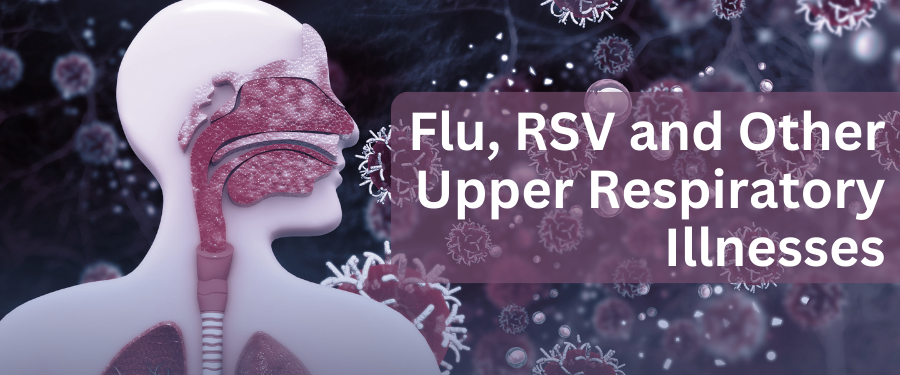Flu Information
Who should get the flu vaccine?
The CDC recommends annual influenza vaccinations for everyone age 6 months or older. Vaccination is especially important for people at high risk of influenza complications, including:
- Pregnant women
- Older adults
- Young children
Chronic medical conditions can also increase your risk of influenza complications. Examples include:
- Asthma
- Cerebral palsy
- Chronic obstructive pulmonary disease (COPD)
- Cystic fibrosis
- Epilepsy
- HIV/AIDS
- Kidney or liver disease
- Muscular dystrophy
- Obesity
- Sickle cell disease
Who shouldn't get the flu shot?
Check with your doctor before receiving a flu vaccine if:
You're allergic to eggs. The flu vaccine contains tiny amounts of egg protein. If you have an egg allergy or sensitivity, you'll likely be able to receive a flu vaccine — but you might need to take special precautions, such as waiting in the doctor's office for at least 30 minutes after vaccination in case of a reaction.
You had a severe reaction to a previous flu vaccine. The flu vaccine isn't recommended for anyone who had a severe reaction to a previous flu vaccine. Check with your doctor first, though. Some reactions might not be related to the vaccine.
Can the vaccine give me the flu?
No. The flu vaccine can't give you the flu. But you might develop flu-like symptoms — despite getting a flu shot — for a variety of reasons, including:
- Reaction to the vaccine. Some people experience muscle aches and fever for a day or two after receiving a flu shot. This may be a side effect of your body's production of protective antibodies. The nasal vaccine can cause runny nose, headache and sore throat.
- The two-week window. It takes about two weeks for the flu shot to take full effect. If you're exposed to the influenza virus shortly before or during that time period, you might catch the flu.
- Mismatched flu viruses. In some years, the influenza viruses used for the vaccine don't match the viruses circulating during the flu season. If this occurs, your flu shot won't protect you.
- Other illnesses. Many other diseases, such as the common cold, also produce flu-like symptoms. So you may think you have the flu when you actually don't.
What kind of protection does the flu vaccine offer?
Flu vaccines aren't 100 percent effective. According to the CDC, in past flu seasons when the match between flu vaccine and circulating strains of flu virus is close, a flu shot is between 60 and 70 percent effective in warding off influenza in all age groups combined.
Can I lower my risk of the flu without getting a flu shot?
With or without a flu shot, you can take steps to help protect yourself from the flu and other viruses. Good hygiene remains your primary defense against contagious illnesses.
- Wash your hands often and thoroughly with soap and water.
- Use an alcohol-based sanitizer on your hands if soap and water aren't available.
- Avoid touching your eyes, nose or mouth whenever possible.
- Avoid crowds when the flu is most prevalent in your area.
